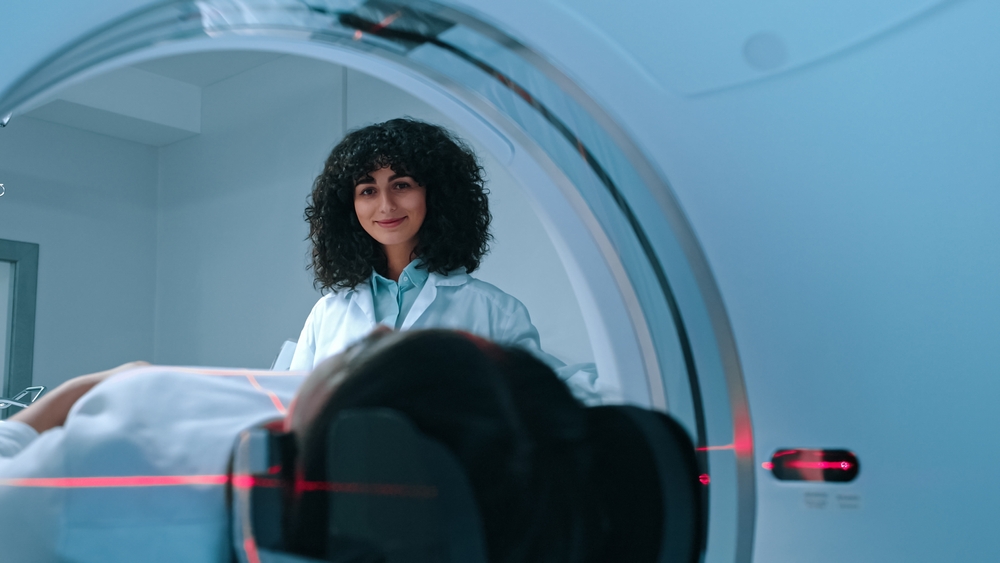Reconstructive surgery plays a crucial role in restoring function and appearance to your body after trauma, congenital abnormalities, or cancer. Although restoring your appearance is important, it is equally crucial to preserve and restore nerve function throughout the affected area to encourage a full recovery. Without nerve function, patients can experience sensory deficits and neuropathic pain that can negatively impact their physical function, quality of life, and emotional well-being. Thanks to modern nerve preservation techniques, patients have a higher chance of sensory recovery and reduced pain after reconstructive surgery.
Why Nerve Preservation Matters
Nerves throughout your body play a vital role in how your body processes sensory stimuli. Your nerves are what allow you to feel touch, sense temperature changes, and notice pain from injuries. Proprioception, which is your sense of self-movement and body position, can also be affected by your nerves and affect your balance, mobility, and coordination. Preserving sensory nerves is crucial for a person’s safety, bodily function, and overall quality of life.
When nerves are damaged during surgery, the consequences can create long-term issues for patients and affect their quality of life. People with nerve damage can experience:
- Neuropathic pain: A type of chronic pain that presents as a shooting, burning, or tingling sensation after nerves have been stretched, severed, or turned into scar tissue called neuromas.
- Limited function: Lack of sensation can make daily activities like grasping objects, walking, and even getting dressed more difficult. Fine motor tasks and even sexual function can be affected by nerve damage.
- Numbness: Nerve-damaged areas can lose feeling and become more prone to injury without realizing it.
- Phantom sensations: Patients sometimes feel sensations in body parts that are no longer present or in areas that have been reconstructed. Phantom sensations can occur with breast reconstruction and limb salvage surgeries, and it can be painful or disorienting.
In addition to nerve damage symptoms, patients can develop chronic post-surgical pain, known as CPSP. Chronic post-surgical pain develops in cases where nerves are compressed, stretched, or cut during surgery. CPSP can also occur if your nerves aren’t properly repaired during surgery or if nerves end up trapped inside the scar tissue. For people experiencing CPSP, it can be hard to physically and mentally recover after surgery due to the chronic pain limiting their mobility and rest.
These nerve issues are why we at The Surgical Clinic strive to adhere to the most up-to-date nerve preservation techniques. We deeply care about the well-being of each of our patients and do our utmost to set them up for the best surgical outcomes possible.
Common Reconstructive Surgeries Where Nerve Preservation Is Critical

Many types of reconstructive plastic surgery aim to do more than simply restore the appearance of the tissue. Restoring sensation and preventing chronic pain are just as high a priority as looks, which is why nerve preservation is a high surgical priority for procedures like:
Breast Reconstruction
Following a mastectomy, breast reconstruction surgery is performed to rebuild the breast mound and help preserve body image after breast cancer. Preserving or restoring sensory nerves throughout the chest wall and breast helps maintain sensation to the skin and breast for comfort and physical intimacy.
Facial Reconstruction
Whether it’s from a traumatic incident, a congenital abnormality, or a tumor removal, restoring function and appearance to a person’s face can greatly improve someone’s quality of life. Nerves throughout the face are used for speech, eating, expression, and feeling, and preserving nerves during surgery helps prevent issues such as face drooping, pain, or impacted ability to smile, chew, or blink.
Limb Reconstruction
After injury, cancer surgery, or chronic wounds, patients may need limb reconstructive surgery to restore tissue coverage, limb function, and blood supply to a limb. Without proper nerve function in the limbs, patients can have limited movement that affects their quality of life and ability to be independent.
Gender-Affirming Surgery
Used to align a person’s physical body with their gender identity, gender-affirming surgery may include procedures such as chest reconstruction, phalloplasty, or vaginoplasty. Preventing nerve damage during these surgeries is crucial for maintaining erogenous and tactile sensation for comfort and sexual function.
Head and Neck Cancer Reconstruction
When tumors are removed from areas like the neck, throat, jaw, or mouth, reconstructive surgery is used to preserve appearance, speech, and a patient’s ability to swallow. Nerves throughout the head and neck are intricate, and damage to them can cause severe discomfort, weakness, or paralysis.
Scar Revision and Secondary Procedures
Some scars can affect a person’s appearance and range of motion, as well as cause pain from nerves being trapped within the scar tissue. Revision surgery can help relieve the pain and discomfort of damaged nerves from a traumatic injury or previous surgery. Preserving nerves during these procedures can help prevent the need for further revision surgeries.
Amputation and Limb Salvage
During a limb salvage, doctors try to preserve as much limb and tissue function as possible after infection or trauma. If salvage isn’t possible, the limb is amputated. In both of these procedures, nerve preservation is important to reduce chronic pain and make future prosthetic use possible. Cut nerves during an amputation can lead to phantom limb pain or painful neuromas.
Key Nerve Preservation Techniques in Reconstructive Surgery

Whether it’s rebuilding a breast or reconstructing a limb, surgeons today utilize a variety of nerve preservation techniques to protect and repair delicate nerves. The most effective and widely used nerve preservation methods include:
- Intraoperative Nerve Mapping and Monitoring: Electrical stimulation is used to identify, trace, and protect nerves in real-time during surgery.
- Microsurgical Nerve Repair: Cut or damaged nerves are reconnected under an operating microscope with ultra-fine sutures.
- Nerve Grafting: Grafts such as autografts, synthetic conduits, and allografts are used to bridge the gap between nerves when direct nerve repair isn’t possible.
- Targeted Muscle Reinnervation (TMR): Amputated nerves are rerouted through healthy muscle to prevent neuroma formation and improve prosthetic control.
- Regenerative Peripheral Nerve Interfaces (RPNIs): Severed nerves are implanted into small muscle tissue grafts to create a buffer and target for regenerating nerve fibers in combination with or as a replacement to TMR.
- Neurotization (Sensory Nerve Transfer): A donor nerve is connected to a recipient nerve to restore sensation.
- Use of Biologic Nerve Wraps and Scaffolds: Biologic or synthetic materials are used to surround nerves surgically to reduce inflammation, friction, and scar formation.
- Sensate Flap Design: A tissue flap, including the nerve supply, is transferred from another part of the body to reconnect nerves in the reconstruction site.
- Minimally Invasive and Nerve-Sparing Surgical Planning: Advanced imaging is used to plan incisions and dissections to avoid critical nerves.
These methods are not limited to one specific surgery, and more than one method can be used during a surgery to achieve the best possible outcome. At The Surgical Clinic, our reconstructive surgeons employ these advanced nerve preservation and repair techniques to help patients heal structurally and sensationally. These approaches aim to prevent chronic pain, restore vital sensory feedback, and improve long-term satisfaction with the surgical outcome.
Why Choose The Surgical Clinic for Reconstructive Surgery
If you’re considering reconstructive surgery, finding a qualified and experienced surgeon is paramount to achieving the best results. At The Surgical Clinic in Nashville, TN, our board-certified reconstructive surgeons are dedicated to providing top-tier care tailored to your individual needs. With extensive training and a commitment to patient safety, our team ensures that you receive the highest standard of medical care.
Don’t leave your health and well-being to chance—schedule a consultation with one of our expert surgeons today and take the first step towards restoring your form and function. Your journey to recovery starts here at The Surgical Clinic in Nashville, TN.

